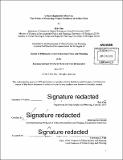| dc.contributor.advisor | Bishwapriya Sanyal. | en_US |
| dc.contributor.author | Chu, Eric (Eric Kwok-Wai) | en_US |
| dc.contributor.other | Massachusetts Institute of Technology. Department of Urban Studies and Planning. | en_US |
| dc.coverage.spatial | a-ii--- | en_US |
| dc.date.accessioned | 2015-09-29T19:02:05Z | |
| dc.date.available | 2015-09-29T19:02:05Z | |
| dc.date.copyright | 2015 | en_US |
| dc.date.issued | 2015 | en_US |
| dc.identifier.uri | http://hdl.handle.net/1721.1/99081 | |
| dc.description | Thesis: Ph. D. in Environmental Policy and Planning, Massachusetts Institute of Technology, Department of Urban Studies and Planning, 2015. | en_US |
| dc.description | Cataloged from PDF version of thesis. | en_US |
| dc.description | Includes bibliographical references (pages 199-223). | en_US |
| dc.description.abstract | An increasing number of international policymakers and funders have strongly advocated for programs that integrate and support both climate change adaptation and urban development, arguing that combining these two objectives will help ensure the long-term resilience of cities. This dissertation delves into the cases of Bhubaneswar, Indore, and Surat in India and looks at how urban local governments plan, implement, and advocate for locally grounded, contextually relevant adaptation and development priorities within their jurisdictions given such external mandates and incentives. My findings highlight two interrelated ways to theorize changing institutional relationships between climate adaptation, development planning, and urban political economy. First, through a process that I call street-level resilience making, I find that adaptation planning, implementation, and governance relies on the experimentation and co-creation of adaptation options between urban sectors and actors. Secondly, I show that urban adaptation is governed through power in translation, where different urban actors, groups, and communities contest intervening authorities through their ability to translate climate information, adaptation needs, and resilience-building options. In this context, cities are not in fact unidirectional recipients of external aid and support; rather, cities are taking ownership over how external funds get implemented, which urban actors participate in the process, and why certain sectors and populations receive more support than others. However, as cities gain authority over how external adaptation mandates get translated into concrete programs and interventions, this simultaneously creates more opportunities for local authorities to exclude certain populations in the process. The pursuit of urban resilience can therefore become a moniker for further co-optation of political power and for entrenching existing urban socioeconomic injustices. In response to rising urban inequalities attributed to current and pipeline adaptation interventions, I present a framework for evaluating climate justice from below. This concept takes into account how adaptation is mainstreamed into urban development and its relationship to broader socioeconomic transformations at a global scale. I conclude that the ability to mitigate existing power imbalances rests on the restructuring of governance arrangements available to marginalized communities to advocate for their own interests in the street-level resilience-making process. | en_US |
| dc.description.statementofresponsibility | by Eric Chu. | en_US |
| dc.format.extent | 223 pages | en_US |
| dc.language.iso | eng | en_US |
| dc.publisher | Massachusetts Institute of Technology | en_US |
| dc.rights | M.I.T. theses are protected by copyright. They may be viewed from this source for any purpose, but reproduction or distribution in any format is prohibited without written permission. See provided URL for inquiries about permission. | en_US |
| dc.rights.uri | http://dspace.mit.edu/handle/1721.1/7582 | en_US |
| dc.subject | Urban Studies and Planning. | en_US |
| dc.title | Urban adaptations observed : the politics of governing climate resilience in Indian cities | en_US |
| dc.type | Thesis | en_US |
| dc.description.degree | Ph. D. in Environmental Policy and Planning | en_US |
| dc.contributor.department | Massachusetts Institute of Technology. Department of Urban Studies and Planning | |
| dc.identifier.oclc | 921889386 | en_US |
